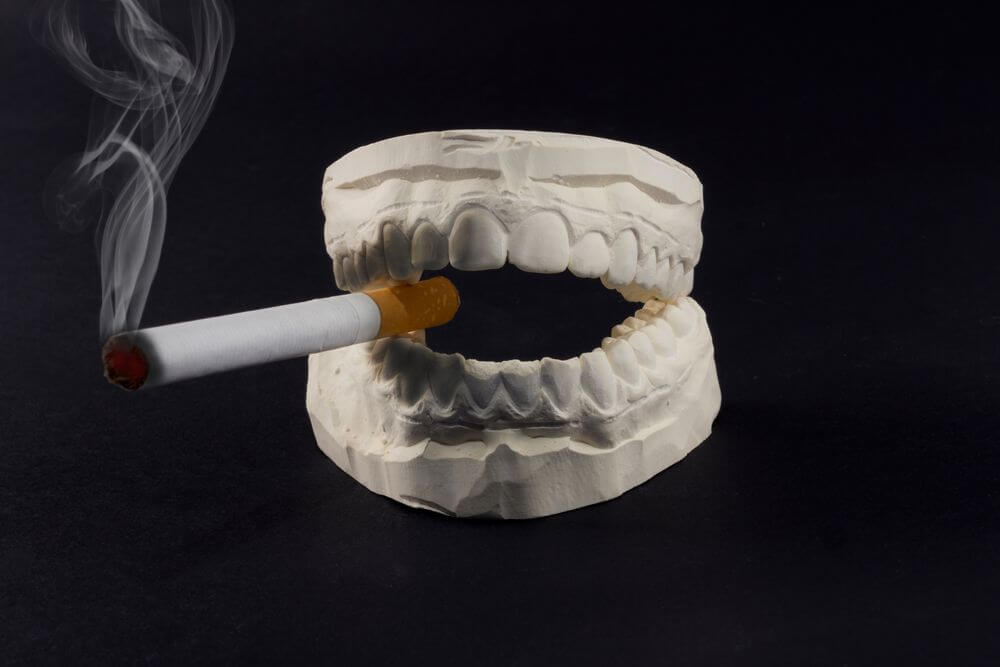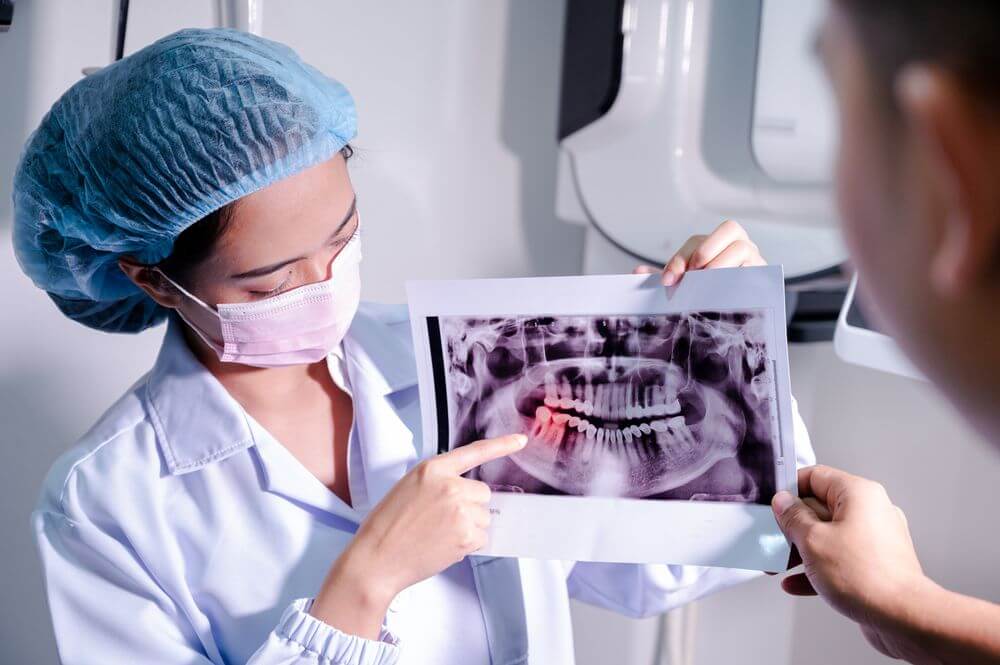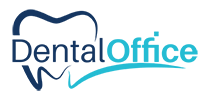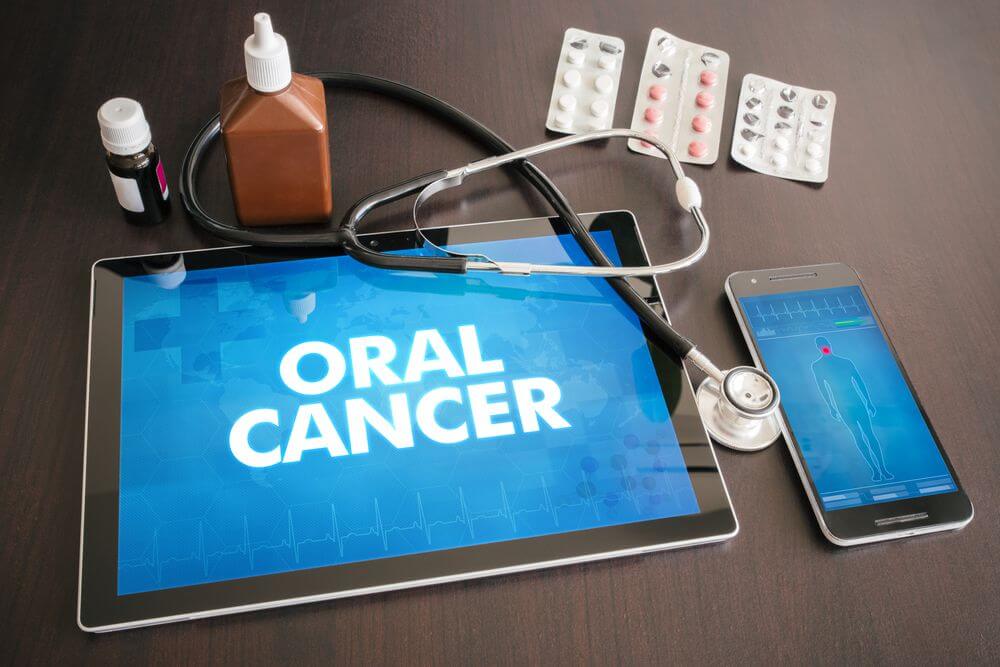Important Things You Should Know About Oral Cancer Screening
Unfortunately, every year, over 4,000 Canadians are diagnosed with oral cancer, with late detection a very real issue. It is the main reason why cancer screenings are essential to your overall oral health. If caught early, oral cancer can be easily treated. This is why oral cancer screening is very important. In fact, a dental health professional can detect 84% of early oral cancer cases.
When your dentist performs an oral cancer screening, they use several tools to look for any mouth sores or discolouration in your mouth. They also feel the tissues around your mouth for abnormalities or lumps. If they detect some irregularities in your mouth, they will send a sample of it for further lab testing.
It may sound complicated, but the truth is that there’s nothing too difficult about oral cancer screening. In this blog post, we will define what oral cancer is as well as some symptoms that can help you determine whether you need it.
What is Oral Cancer Screening?

Oral cancer screening is an oral examination performed by a dentist to look for signs of cancer in your mouth. The main goal of this screening is to detect mouth cancer as early as possible, to get an immediate cure.
It is easy to treat cancer, and positive outcomes are more likely to be achieved during its earliest stages. Although, by the time symptoms appear, oral cancer may have already started to spread. When you catch it early, you have increased the chances of survival. Also, you have lesser chances of getting unpleasant side-effects associated with treatments.
Guidelines for Oral Cancer Screening
The U.S. Preventive Services Task Force (USPSTF) states that there is not enough evidence to determine whether screenings lessen oral cancer rates among asymptomatic adults. Fortunately, medical experts can identify oral cancer at very early stages. During these early stages of cancer, lesions are reversible and more easily treated. With that being said, the American Dental Association (ADA) gives some guidelines about oral cancer screenings:
- Dental professionals should perform intraoral and extraoral visual and tactile examinations for adult patients.
- If suspicious lesions are detected, dental professionals need to perform a biopsy right away. If they cannot perform a biopsy, refer the patient to a specialist immediately.
How Does Oral Cancer Screening Work?
Oral cancer screening in Toronto does not require any other special preparation. Screenings are usually performed during regular dental appointments. During a general screening, your local dentist will check your mouth to look for sores and red or white patches of tissue. Your dentist will also feel your oral tissue while wearing gloves, looking for lumps and abnormalities in your mouth.
Some dentists may suggest special oral cancer screening methods for you. They may also recommend that you rinse your mouth with a special blue dye before your screening. This blue dye will help you differentiate healthy cells from abnormalities.
If your dentist suspects any abnormalities, they may ask you to return after a few weeks to check for improvements. In some instances, your dentist may also recommend that you get a biopsy to make sure the tissue isn’t cancerous.
If you are unsure if your insurance covers oral cancer, you should check first. It is also essential to ask your local dentist in Toronto about any extra costs for the screening.
How to Know if You are at Risk of Oral Cancer
Below are some of the risk factors for oral cancer:
- People over 40 are more at risk than younger adults.
- Men are more prone than women.
- Human papillomavirus (HPV) increases risk.
- Smoking
- You have an unhealthy diet.
- Heavy consumption of alcohol
- Too much sun exposure
Some people who have been diagnosed with oral cancer have at least one of these risk factors. However, there is a growing rate of people with oral cancer who have no risk factors. Thus, if you don’t have any of these factors, it is still essential to get an oral cancer screening.
Symptoms of Oral Cancer

Below are some of the symptoms of oral cancer:
- White or red patches in your mouth
- Spots that continuously bleed or won’t heal
- A lump or abnormalities in the tissues of your mouth
- Pain and numbness when you bite down on your teeth
Treatment and Prevention for Oral Cancer
The best way to prevent oral cancer is to get regular oral cancer screenings during dental checkups. Your dentist may not be able to diagnose you during the exam. Worry not because they will send a sample of your tissue for lab testing to identify whether it is cancer.
Get a Simple and Quick Oral Cancer Screening Today
Here at Thornhill Dental, we offer quick and painless examination of your mouth and teeth to detect cancerous and precancerous conditions. If we find an area we are concerned about, we may perform a simple test called the brush test.
This test collects all cells from a suspicious lesion in your mouth, then sends it to a laboratory for analysis. If this test comes back atypical or positive, we may recommend a biopsy. Remember, early detection is key to beating oral cancer. Book an appointment for oral cancer screening today. Call us at 905-771-8100.




